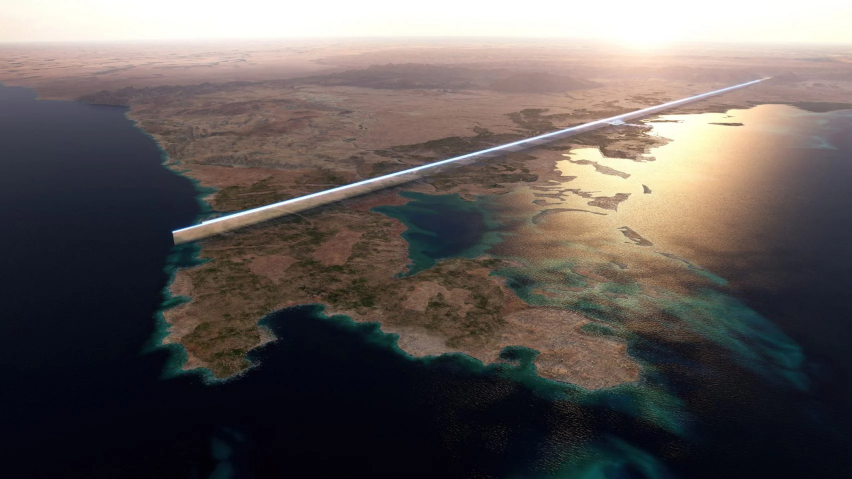
Saudi Arabia authorised "lethal force" for Neom land clearance reports BBC
Saudi forces were cleared to use "lethal force" to remove those resisting relocation to make way for The Line mega city as part of Neom in Saudi Arabia, according to a report by UK media organisation the BBC.
Speaking to the BBC, Colonel Rabih Alenezi said that he was part of the team ordered to evict people from villages ahead of the development of The Line in northwest Saudi Arabia.
"Whoever continues to resist [eviction] should be killed"
According to Alenezi, when he was ordered to evict people from the Al-Khurayba village, which is near the site of The Line mega city, he was authorised to use lethal force against those who refused to leave.
"Whoever continues to resist [eviction] should be killed, so it licensed the use of lethal force against whoever stayed in their home," Alenezi told the BBC.
The BBC added that it had not been able to independently verify Alenezi's allegations.
Dezeen has reached out to Neom for comment.
Neom is set to be built on a 10,200-square-mile area in the Tabuk region of Saudi Arabia that is largely occupied by members of the Huwaitat tribe. According to Alenezi, the clearance order stated the tribe contained "many rebels".
The Al-Khurayba village is one of several villages that have been cleared to make way for Neom. The BBC published before and after images of another village – Sharma – showing the extent of the destruction.
According to the Saudi government, 6,000 people have been relocated to make way for the Neom development. It is estimated that around 20,000 tribe members will be relocated from their historic lands to accommodate the development.
Huwaitat tribe members arrested
Several members of the Huwaitat tribe who have protested the evictions have been arrested by Saudi authorities. In 2020, tribe member Abdul Rahim al-Huwaiti was reportedly killed by Saudi security services after posting videos online aiming to draw attention to the evictions.
Human rights organisation ALQST subsequently reported that three people connected to Al-Huwaiti, who were forcibly evicted from the Neom site in 2020, had been sentenced to death. The men were sentenced by Saudi Arabia's Specialised Criminal Court on 2 October.
Last year the United Nations Human Rights Council issued a statement denouncing the planned executions.
"UN experts today expressed alarm at the imminent risk of execution of three members of the Howeitat tribe in Saudi Arabia and urged authorities to halt the process," said a statement from the UN experts.
Saudi Arabia officially responded to the report with a letter from the Permanent Mission of the Kingdom of Saudi Arabia to the United Nations, which rejected that three men were sentenced to death for criticising evictions. It claimed the trio were terrorists connected to organisations Daesh and Al-Qaida.
According to ALQST, 40 other villagers remain in detention following the evictions.
Neom is one of 14 giga projects being developed in Saudi Arabia as part of the Saudi Vision 2030 plan to shift the country's economy from a reliance on oil.
The development, which includes the planned 170-kilometre-long Line mega city, is the largest and most controversial of the projects.
"[Neom] is the centrepiece of Mohamed Bin Salman's ideas," Alenezi, who now lives in the UK told the BBC. "That's why he was so brutal in dealing with the Huwaitat."
"Mohamed Bin Salman will let nothing stand in the way of the building of Neom," he continued. "I started to become more worried about what I might be asked to do to my own people."
Numerous international architecture studios are working on the Neom project including US studio Morphosis, UK studio Zaha Hadid Architects, Danish studio BIG, Dutch practices UNStudio and Mecanoo , US studio Aedas, German studio LAVA and Australian studio Bureau Proberts.